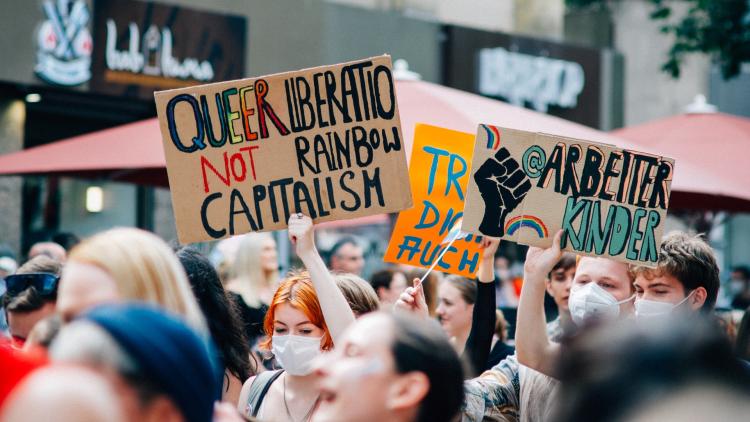SOAS academic part of research team awarded Australian Research Council Discovery Grant for ...

18 November 2020
Gina Heathcote, Reader in Gender Studies and International Law is part of a team of researchers who have been successful in the award of an Australian Research Council Discovery Grant for their research project, Gendering Peace Mediation. Gina will work in collaboration with Professor Jacqui True (Monash University) and Professor Karin Aggestam (Lund University).
The project aims to reconstruct international legal and political mediation frameworks to increase the chances of facilitating durable peace. Current peace mediation is ineffective as most peace agreements fail within 5-years. There is evidence that women's participation in conflict-resolution leads to better peace. This project will distil practical mechanisms and generalizable lessons from women’s successful community level mediation in a toolset that can inform and transform high-level mediation processes. This project will generate an evidence base for rethinking peace mediation design and practice, traditionally characterised by male-dominated institutions and disciplines, to resolve conflict and benefit national and global security.
Reacting to the funding, Gina Heathcote, Reader in Gender Studies and International Law said:
"I look forward to working with colleagues at the Monash Gender, Peace and Security Centre, a fantastic hub for gender-inclusive peace projects and with global recognition for the research undertaken. This is an excellent opportunity to expand the work I have previously undertaken at SOAS on collective security and feminist methodologies and to connect SOAS networks working across gender and conflict issues with research on the transformation from conflict to peace.
The research offers an opportunity to move beyond simple liberal peace frameworks where counting the women included in peace processes has been the key mechanism for 'measuring' gender. In my book Feminist Dialogues on International Law (2019) I analyse how gender expertise is deployed in international insitutions and this is an opportunityt to take those ideas to the field and, also in line with my earlier research, engage those involved in peace processes as experts on how gender flows through and remains outside of peace processes. Research has shown that in elite peace processes, where women have meaningfully participated, an agreement is more likely to be reached. There is also empirical evidence that provisions addressing women’s needs and priorities in the text of the agreement are more likely when women are substantively represented in the process. Nevertheless in moving away from the ‘add women and stir’ approach that is often adopted in peace mediation, we contest the existing norms, structures and institutions that influence the practices and design of peace mediation to propose an alternative feminist framework and to use feminist methods to address the persistent flaws and failures of peace agreements more broadly."
The research is funded by the Australian Research Council Discovery Grant scheme and runs from January 2021 until summer 2023 and includes research periods in Abuja and Nairobi.
